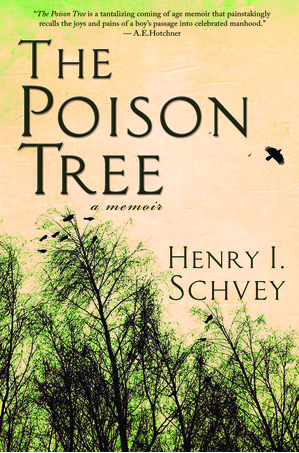Missouri’s Poet Laureate Speaks at St. Louis Public Library—Schlafly Branch
Share the post "Missouri’s Poet Laureate Speaks at St. Louis Public Library—Schlafly Branch"
By Diana Davis
At 7 p.m. on Wednesday, Sept. 18, I went to the St. Louis Public Library—Schlafly Branch to hear William Trowbridge, Missouri‘s new Poet Laureate, share his work. If I was asked to describe the reading in one word, it would be—FUN!
Trowbridge has a wonderfully delightful, wicked sense of humor, which kept me chuckling most the evening. He’s educated, sophisticated, irreverent, and sarcastic. He’s coy, cute, and crass. One moment he’s profound and has you soaring with the angels. The next, he’s dashed you into the gutter using a vernacular which calls spades, spades and tits, tits. He’s a word smith who has played with sounds and syllables until he has found the exact combinations to create poetry, thought and amusement. Did I enjoy the reading? Is a Smurf’s butt blue?
Trowbridge started out wanting to write a best-seller in the field of poetry, so he did his research and found that the best-selling books were self-help books—how to win friends and influence people, create win-win situations, etc. He was looking for a gimmick when he thought of an interview he had seen on TV. It was on the Wide World of Sports back in 1972. Mark Spitz had just won seven gold medals in swimming at the Summer Olympics. The reporter was doing man-on-the-street interviews. Most people said that it was wonderful that America had been so well represented; Spitz was a credit to American youth, Yahda, Yahda, Yahda. Then he came to the final interviewee, who replied, “Well, if I could swim like Mark Spitz, I’d win seven gold medals too.” “That was it”, Trowbridge said. He had the principal characters for his new book, all of whom would be called “Fool,” and he had the title for his collection, Ship of Fool.
We’ve all been fools at one time or another; thus, it is easy for us to have a kinship with his characters called “Fool.” In the autobiographical middle section, the author ridiculed himself, as in Pantsing Bobby Freeman in Fifth Grade. Trowbridge reported that he had arrived at an after-school scene where a group of bullies had pushed an asthmatic classmate down behind some bushes and had removed his slacks and soiled underpants. One of them had thrown the undergarment into a tree where it caught on a low hanging limb and waved like a flag in the cold breeze. As the half-naked, mortified child scurried to put his corduroys back on, someone yelled out, “Eeeyow, shit stains!” The author had joined in the laughter and reported that it felt “okay.” Later, however, one could feel his discomfort as a guilty conscience replaced childhood amusement with shame.
Trowbridge’s archetype fools exist on two planes, as humans and as deity. They are arranged in random order within the book, much too complicated to go into in depth here. Buy the book. It’s an amusing, thought-provoking read.
Trowbridge has published four previous poetry collections: Flickers, O Paradise, the Book of Kong, and Enter Dark Stranger. In addition, he’s been published in many periodicals: The Chariton Review, The Iowa Review, and River Styx, among others. His awards include an Academy of American Poets Prize, a Bread Loaf’s Writers’ Conference scholarship, and a Pushcart Prize. He’s been awarded several fellowships, including The MacDowell Colony, Ragdale, Yaddo, and The Anderson Center.
Trowbridge holds a Bachelor of Arts in Philosophy and a Master of Arts in English from University of Missouri-Columbia, and a Ph.D. in English from Vanderbilt University. He lives in Lee’s Summit, Missouri with his wife, Sue, who has been a helpmate and supporter of his writing career. They have three children. He is Distinguished University Professor Emeritus at Northwest Missouri State University where he was an editor of The Laurel Review/Green Tree Press from 1986 to 2004. He currently teaches part-time in the University of Nebraska’s Master of Fine Arts in Writing Program. It is a low residency program offering courses in poetry, fiction, creative non-fiction, and drama (plays). Each instructor is allowed to take on five students with whom he or she instructs and converses almost exclusively via the internet and personal discussions. Trowbridge had been a bit leery about getting involved with the venture, but the program caught on fast. His students are bright and hard-working. Both he and his students are finding it a worthwhile endeavor.
After the reading, Trowbridge was stopped on the way back to his book-signing table by a young writer who asked about straying from his purpose in writing poetry. The unidentified fellow said he starts out to write a poem about a particular subject, but frequently, his poem takes a different turn. He asked what he should do to get back on track and stay there. Trowbridge replied that the “staying on track” rule applied only to paragraphs and essays. He advised that a poet should allow his creative mind to lead him in whatever direction it wanted to go. The poet would almost surely end up with a better poem that way. “Do not allow your critical mind to overwhelm your creative mind,” he said.
The young man also asked if Trowbridge wrote like other poets who said that words flowed effortlessly, like magic, out of their pens onto paper. Trowbridge chuckled and replied, “Well, that sometimes happens.” He went on to explain that more often than not, he writes an original draft, then revisits the writing again and again, changing a word, or a phrase, tweaking until the poem seems just right. Most good poems required a lot of revision effort. The best way to improve your craft is to read other writers. If you study poetry, your writing will develop ten times faster than if you had no guidance. “If there was one thing I could say to help you become a better writer it is: Read, Read, and Read.” Great advice from a great poet. Perhaps a good place to start is with Ship of Fool.



